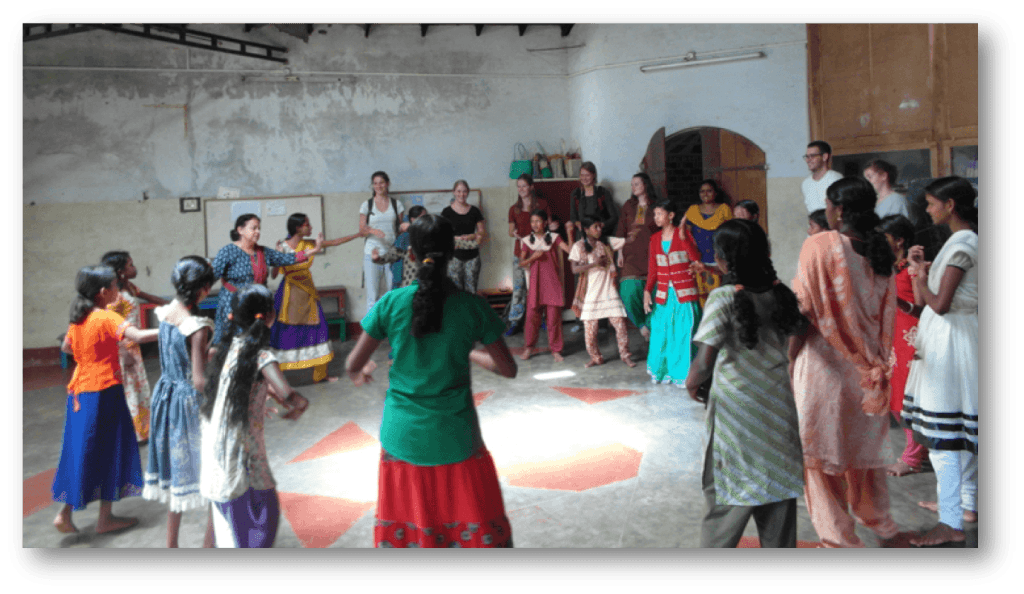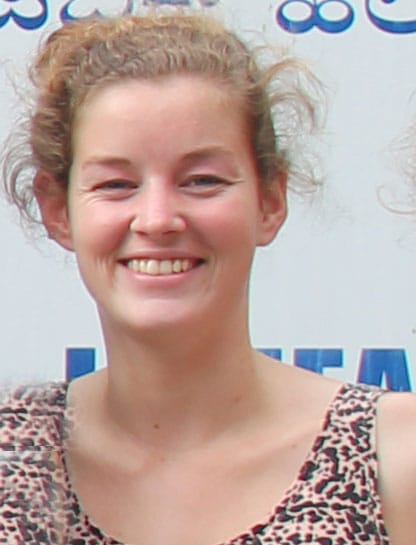
The honours programme of Maastricht University has a cooperation with the Institute of Public Health(IPH) in India. We, a group of 9 students, are doing a research for the Institute of Public Health about the human resources for health in India. We were invited by IPH at the end of our summer holiday and experienced the health care system for two weeks by ourselves. Our program consisted of several field visits in Tumkur and in Bangalore, and a visit to Gudalur, where a program for the Adivasi is made that contains their rights, education and health.
Our program started on Monday the 17th of August with an introduction about our program during our stay at the IPH. On Tuesday we went to Tumkur for two days. Here we visited the government/public health facilities: the sub centre, primary healthcare centre, community healthcare centre and the district hospital. We also visited the tuberculosis centre of Tumkur and a private hospital. Because our project is about the human resources for health in India we also focus on the distribution of the doctors in not only the rural and urban areas, but also in public and private settings. For us it was hard to imagine why doctors would prefer to work in the private sector. After visiting the different facilities (district/public hospital and private hospital) it was more clear to us why doctors choose to work in the private hospital, especially because we also had the opportunity to talk to d octors in both settings. Besides this, it was also hard for us to imagine why a lot of people visit the private sector instead of the public (which is for free).
octors in both settings. Besides this, it was also hard for us to imagine why a lot of people visit the private sector instead of the public (which is for free).
After our visit, it is clear that the private sector is better and as long as patients have money to pay the private sector, they will go to the private. After Tumkur, we had a visit in a field office in Bangalore itself on Thursday. Here we saw another primary healthcare centre and a community healthcare centre. Unfortunately, we didn’t had the opportunity here to talk with healthcare workers in this field. On Friday we had debriefing day and we told Dr. Deva about the experiences we had during our first week. Also we gave a presentation about our work back home in Maastricht and updated Dr. Deva about our progress so far. On Sunday we left Bangalore to go to Gudalur. This was a different kind of experience, one that I didn’t expected to have during our stay at the IPH. In Gudalur a project for the Adivasi people was started about 25 years ago.
The incentive of this program was to give the Adivasi people their rights back: bring them back their land/forest and learn them about their rights and how to maintain their rights and their land. Adivasi are the poorest people of India, and giving them their land back didn’t solve all their problems The project extended, and included the strengthening of a wealthy health system and a good educational system. Nowadays the Adivasi have their own school, the best in the area, and an own hospital, which is also very good. The hospital and the school are managed by almost only Adivasi people. There are still a few persons from outside that help the Adivasi maintaining their community, but their goal is (as it was 25 years ago) to strengthen the Adivasi people to do this themselves. I really like the philosophy the people in Gudalur have and I think their approach of helping the Adivasi people is one that should be used more often and can be an example in other situations. I’ve learned a lot during those 2 weeks at the IPH and hope I will use these experiences in my later life when I myself operate as a doctor. It’s amazing to see what good work people do to make other people’s lives better and I really have a lot of respect for them.
Lotte Boonen from Maastricht University was an intern at Institute of Public Health, Bangalore, India.
Disclaimer: IPH blogs provide a platform for interns to share their reflections on different public health topics. The views expressed here are solely those of the authors and not necessarily represent the views of IPH.


